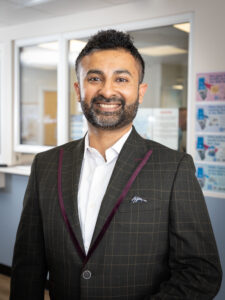Elmtree Medical Centre – Embedding digital triage into everyday practice
Elmtree Medical Centre in Stockton-on-Tees has taken a forward-thinking approach to modernising general practice by embedding digital triage into its daily operations. With a rapidly growing patient list – expanding from 5,000 to over 18,000 – the team recognised that traditional systems alone wouldn’t be enough to meet future demand.
Despite already achieving some impressive statistics using traditional access routes, including phone waiting times under a minute and high patient satisfaction, the leadership team saw an opportunity to improve access and efficiency even further. The introduction of a digital triage system during opening hours (8am – 6.30pm) marked a significant shift in how care is delivered.
Patients now complete tailored questionnaires and access curated self-help advice online, allowing them to find the right support quickly and independently. This means clinicians are seeing patients who are better informed and more appropriately triaged, leading to more focused and effective consultations.
Jessica McWeeney, Operations Manager, explained:

Jessica McWeeney
“It’s allowed us to triage more efficiently, directing patient queries to the right place without unnecessary delays. It’s also helped reduce the volume of incoming phone calls and footfall, meaning those who do need to speak to us directly can get through more quickly.”
The system has also helped flatten the notorious “8am rush.” Digital requests now flow directly to clinicians between 8.00am and 6.30pm, reducing bottlenecks and easing pressure on reception staff. Dr Sheikh Mateen Ellahi, GP Partner, noted that this shift has made mornings less stressful and more manageable for the team.
“Not only are our patients happy, our staff told us in our regular surveys that they find it much less stressful knowing that the digital requests are being sent directly to clinicians and we’ve managed to use some of our staff in different ways as well”
“We have been able to gather information about when enquiries are coming in throughout the week and we use that to tailor our staffing models to ensure we have right number of reception and clinical staff available.”
Implementing the system wasn’t without its challenges. Introducing new digital tools required a cultural shift, both for staff and patients. Jessica acknowledged that some patients initially felt they were being “fobbed off” when not offered a traditional face-to-face appointment.
“We tackled this by involving the team in the development of the system from the outset, ensuring they understood the benefits and felt confident in promoting it to patients.”
Clear communication was key. The practice used social media, telephone messages, and direct signposting – particularly targeting younger, digitally confident patients who embraced the change quickly.
“These patients often prefer digital access and have been particularly receptive to the change,” Jessica added.
Dr Ellahi emphasised that success wasn’t just about having a digital system – it was about embedding it into the practice’s culture and processes.
“Simply having a digital triage system is not enough. You need processes and culture in place to adapt to it.”
Jessica’s advice to other practices is to start small and build gradually.
“Go for it – but recognise it takes time, resource, and commitment. Over time, adoption will grow, and your team will see the value.”
Elmtree’s experience shows that digital triage, when thoughtfully implemented and supported by the whole team, can be a powerful tool in building a more modern, sustainable general practice.
For more information on Modern General Practice visit: NHS England » Modern general practice model

Dr Sheikh Mateen Ellahi
